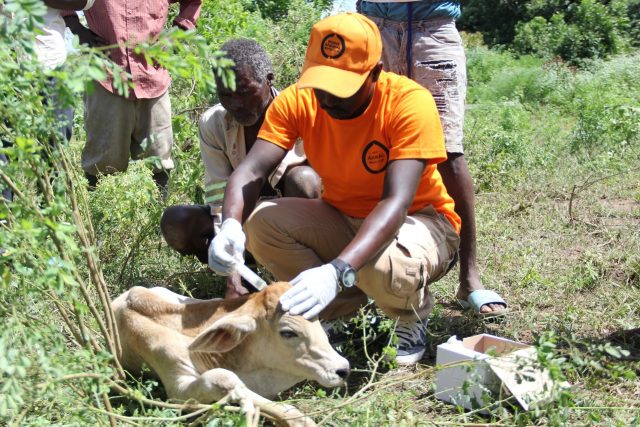Courtesy of World Veterinary Association and Global Animal Medicines Associtaion
Monitoring animal health and preventing animal disease outbreaks is vital to the economy and safety of the country’s food supply. Production of healthy livestock helps to ensure a safe food supply, keeps consumer prices stable, bolsters local communities, and improves the health of vulnerable populations, especially the young and elderly.
What’s more, securing a safe, sufficient and nutritious food supply at a time of rapidly increasing population depends on healthy, productive animals.
(i) Protecting our health
When we protect the health of animals, we equally protect our health. Global disease prevention, management and control efforts must recognize the interdependent relationship between animal and human health – an approach known as ‘One Health.’ This ensures healthcare researchers and practitioners in both areas work hand-in-hand to prevent disease outbreaks across species and address the root cause of their spread. This has led to the successful management of deadly diseases like avian flu, and is being used to eliminate others in the future.
What is One Health?
The One Health concept recognises the interdependent relationship between the health of humans, animals and our shared environment. Our world is connected, and if one is threatened, it has repercussions for the other two. In people, for example, at least 60% of all diseases originated in animals – preserving their health can safeguard ours 2.
Policymakers, NGOs and practitioners from the animal and human health sectors must work together to solve our common problems with a One Health approach.
This means sharing ideas and knowledge around treatment, and tackling problems like zoonotic disease with a systemic, integrated approach.
(ii) Feeding our World
The global population is expected to rise from its current 7 billion to over 9 billion by 2050 5. It’s like adding the entire population of Africa to our world…..twice. This means a surge in the global demand for milk, meat and eggs as people, especially in developing regions, look for nutritious ways to feed their families and communities.
With many more mouths in need of high-quality protein, there is increasing competition for natural resources. In recent decades, the efficiency of livestock production has improved significantly thanks to modern tools like better nutrition, vaccinations, and improved breeding.
However, with more than two billion additional mouths to feed by 2050, this is not enough. We must further invest in research and development, prevention tools, treatments and technologies that will continually improve farm efficiency and preserve natural habitats.
(iii) Growing our Communities
For farm families around the world, livestock is an essential driver of community growth. They are not just a source of healthy, essential proteins through meat and milk, they are an investment that can help families expand their operations. In developing regions, a single animal can provide food for their family, manure for their plants and labor to help till the field.
Farmers then become more productive, which provides greater income that can be spent on their family’s wellbeing and within their community. Their health can improve and the businesses around them can grow. For resource-poor, developing regions, these are transformative contributions..
However, the loss of an animal can be equally devastating to the family and community. As the United Nations Food and Agriculture organisation has said — “The loss of livestock not only represents a loss of income for families, but also family savings and investment over many years. Livestock represents a safety net for many families and the loss of such productive assets will impact significantly on lives and livelihoods.”
Keeping animals healthy keeps communities vibrant and growing as well. Ensuring farmers have the necessary tools, like modern vaccines, antibiotics and treatments, and access to veterinarians are essential in meeting this goal.
Healthy animals are the foundation of vibrant and growing communities. Tools like modern vaccines, antibiotics and treatments, as well as access to veterinarians allow farmers to protect their animals, which supports the friends, family and community around them.




